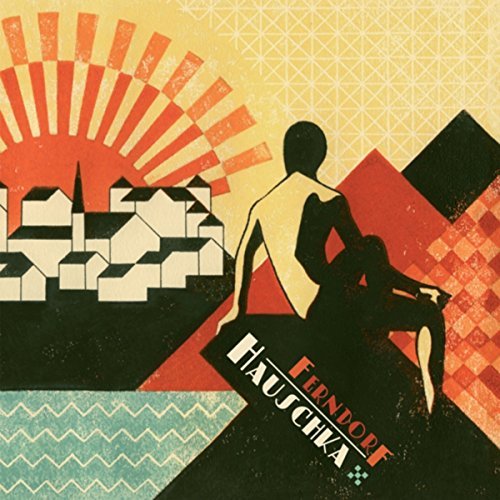
Hauschka
Ferndorf
Release Date: Oct 7, 2008
Genre(s): Electronic, Experimental
Record label: Fat Cat
Music Critic Score
How the Music Critic Score works
Buy Ferndorf from Amazon
Album Review: Ferndorf by Hauschka
Great, Based on 4 Critics
Based on rating 8/10
The Prepared Piano and Room to Expand summed up their purposes in their titles, with the former demonstrating Hauschka's finesse with the prepared piano (a piano with objects placed between its strings or on its dampers and hammers) and the latter, prepared piano expanded with strings and electronics. In its own way, Ferndorf also conveys its purpose with its title; named after Hauschka (aka Volker Bertelmann)'s hometown, this set of pieces goes beyond the cleverness of his previous albums, digging into childhood nostalgia and other more complex emotions while retaining Hauschka's essentially playful approach. Unlike The Prepared Piano and Room to Expand, only about half of Ferndorf's tracks were improvised -- but even these tracks show how much Hauschka's range has expanded.
Based on rating 7.5/10
As it's evolved, Hauschka's music has become less preoccupied with placing things upon and between his piano strings. The Dusseldorf-based composer is still an avowed proponent of prepared piano, that recent century tradition of manipulating the innards of a grand to evoke sounds controlled as much by the composer as the piano itself. But Hauschka (a.k.a.
Based on rating 7/10
I got quite carried away by Hauschka’s first album on Fat Cat’s spin-off (post-) classical label, 130701, Room to Expand. It’s one of a handful of albums that have been released in recent years exploring the possibilities of the prepared piano. This curious musical beast, in its classical form popularised by John Cage and Arvo Part, working from the innovations of Henry Cowell, but with roots in the work of Satie and even Mozart’s “Turkish Rondo,” takes the piano, an instrument designed for precision, repeatability, and evenness of tone, and with the addition of bits of metal, paper, and other interventions on the part of the composer, adds new textures, tones, and nuances.
Opinion: Very Good
Düsseldorf gadabout Volker Bertelmann has his fingers in a lot of pies, most of them on the right side of saccharine: the purring Morr-style electronica of Music A.M., the stolid pastoral groove of Tonetraeger, some admittedly strange co-writing credits with Teutonic vixen Madelin Zero. But he’s especially compelling in his solo work as Hauschka, an heir to the prepared piano technique propagated by Satie via Cage, and this mostly because he takes it upon himself to actually prepare the piano for something. On Ferndorf, Hauschka’s fourth album and second for the increasingly transcendentalist FatCat imprint, that something is reminiscence.
'Ferndorf'
is available now

